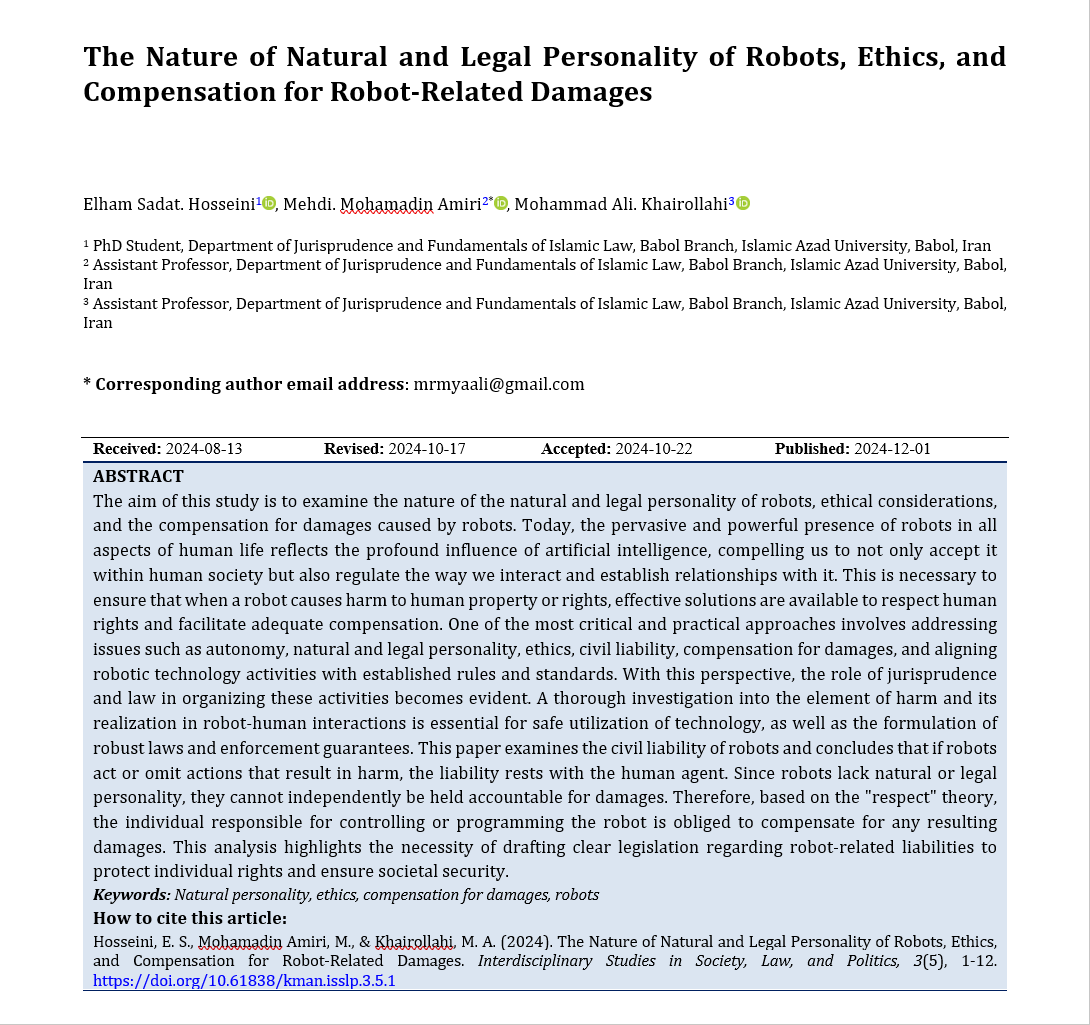The Nature of Natural and Legal Personality of Robots, Ethics, and Compensation for Robot-Related Damages
Keywords:
natural person, compliance with ethics, compensation, robotsAbstract
The aim of this study is to examine the nature of the natural and legal personality of robots, ethical considerations, and the compensation for damages caused by robots. Today, the pervasive and powerful presence of robots in all aspects of human life reflects the profound influence of artificial intelligence, compelling us to not only accept it within human society but also regulate the way we interact and establish relationships with it. This is necessary to ensure that when a robot causes harm to human property or rights, effective solutions are available to respect human rights and facilitate adequate compensation. One of the most critical and practical approaches involves addressing issues such as autonomy, natural and legal personality, ethics, civil liability, compensation for damages, and aligning robotic technology activities with established rules and standards. With this perspective, the role of jurisprudence and law in organizing these activities becomes evident. A thorough investigation into the element of harm and its realization in robot-human interactions is essential for safe utilization of technology, as well as the formulation of robust laws and enforcement guarantees. This paper examines the civil liability of robots and concludes that if robots act or omit actions that result in harm, the liability rests with the human agent. Since robots lack natural or legal personality, they cannot independently be held accountable for damages. Therefore, based on the "respect" theory, the individual responsible for controlling or programming the robot is obliged to compensate for any resulting damages. This analysis highlights the necessity of drafting clear legislation regarding robot-related liabilities to protect individual rights and ensure societal security.
Downloads






